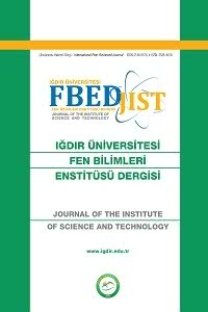Matematik Öğretmen ve Öğretmen Adaylarının Muhtemel Öğrenci Hatalarına Yaklaşımları
Öğretmenlerin matematik alan bilgi yeterlilikleri eğitim-öğretim sürecinin en etkili unsurlarından biridir. Hem pedagojik alan bilgisinin hem de matematik alan bilgisinin göstergelerinden biri ise muhtemel öğrenci hata- larını tespit edebilmedir. Bu çalışmada İran’ın Khoy Kenti’ndeki matematik öğretmenleri ve matematik öğretmen adaylarının soru çözümlerindeki hatalara yaklaşımları incelenmiştir. Bu amaca uygun olarak literatürden seri, türev ve integral kavramlarını içeren ve hatalı olarak çözülmüş üç adet soru katılımcılara yönetilmiştir. Bu sorulardaki hataların sebepleri matematiksel bilgi bağlamında açık uçlu sorularla istenmiştir. Çalışmada elde edilen verilere göre öğretmen ve öğretmen adayları, çözümlerde hata olduğunu belirlemişler fakat hataların sebeplerini matematik alan bilgisi bağlamında tam olarak açıklayamamışlardır. Çalışma bulguları ışığında, katılımcıların seri, türev ve integral bilgilerinin kavramsal boyutta yeterli düzeyde olmadığı söylenebilir.
Anahtar Kelimeler:
Matematik Alan Bilgisi, Pedagojik Alan Bilgisi, Hata Yaklaşımı, Matematik Öğretmeni, Ma- tematik Öğretmen Adayı
Mathematics Teacher and Student Teachers’ Approaches To Students’ Possible Errors
Knowledge quali cation of mathematics teachers is one of the in uential factors in learning process. The ability to diagnose the possible errors of students on the part of teachers and student teachers is taken as one of the criteria to gain insight into the teachers and student teachers pedagogic content knowledge and mathematics knowledge. In this research project, an analysis is made of approaches adopted by the Iranian mathematics teach- ers and student teachers in Khoy Vis–a–Vis the errors committed when solving the problems. To this end, from literature, three questions consisting of concepts of sequence, integral and derivative and their respective incorrect solutions were offered to the participants. Taking into account mathematics content knowledge, open questions as to the errors made were asked. The present results re ected that teachers and student teachers were able to diagnose the errors but unable to explain the reason. In the light of obtained results, it could be said that the participants’ mathematics knowledge especially mathematics concept was not satisfactorily enough.
Keywords:
Mathematical Content Knowledge, Pedagogical Content Knowledge, Error Approach, Mathematics Teacher, Pre-service Mathematics Teachers,
___
- Ball, D., 1990. The Mathematical Understandings that Prospective Teachers Bring to Teacher Education. Elementary School Jo- urnal, 90(4): 449–466.
- Ball, D., 1993. With an Eye on the Mathematical Horizon: Dilem- mas of Teaching Elementary School Mathematics. Elementary School Journal. 93: 373–397.
- Brown, C., Borko, H., 1992. Becoming a mathematics teacher. In D. Grouws (Ed.) Handbook of Research on Mathematics Teaching and Learning. pp.209-239, New York: MacMillan.
- Bukova, E., Kula, S., Uğrel, I., Özgür, Z. 2010. Suf ciency of un- dergraduate education in developing mathematical pedago- gical content knowledge: student teachers’ views. Procedia Social and Behavioral Sciences, 2 , 2222-2226.
- Cornu, B., 1991. Limits. In D.Tall(eds) Advanced Mathematics Thinking.Kluwer Academic Publ. Dordrecht.Netherlands.
- Dönmez,G., Baştürk,S. 2010. Matematik öğretmen adaylarının pe- dagojik alan bilgilerinin ölçme ve değerlendirme bilgisi bile- şeni bağlamında incelenmesi. 9.Matematik Sempozyumu Sergi ve Şenlikleri. Karadeniz Teknik Üniversitesi, Trabzon. 20-22 Ekim 2010.
- Durkaya, M., Aksu, Z., Öçal, M.F., Şenel, E.Ö., Konyalıoğlu, A.C., Hızarcı, S., Kaplan, A. 2011. Secondary school matematics’ approachesto students’ passible mistakes. Procedia Social and Behavioral Sciences, 15: 2569-2573.
- Karasar, N.(1999). Bilimsel Araştırma Yöntemi. 9. Basım. Nobel Yayın Dağıtım. Ankara.
- Konyalıoğlu, A.C., Aksu, Z., Şenel, E.Ö., Tortumlu, N. 2010. Ma- tematik öğretmen adaylarının matematik soru çözümlerinde yapılan hatanın nedenlerini sorgulama becerilerini incelenme- si. Uluslararası Öğretmen Yetiştirme Politikaları ve Soruları Sempozyumu. 11 Hacettepe Üniversitesi.Mayıs 2010,Ankara.
- Konyalıoğlu, A.C., Özkaya, M., Gedik, S.D., 2012. Investigation of Pre-Service Mathematics Teachers’ Subject-Matter Know- ledge in terms of Their Approaches to Errors. Journal of The Instıtute of Science and Technology, 2(2-SpA):27-32.
- Kula, S., Bukova, G., 2010.Matematik öğretmen adayların kavram yanılgıları bilgisinin incelenmesi: limit örneği. 9.Matematik Sempozyumu Sergi ve Şenlikleri. Karadeniz Teknik Üniversi- tesi, Trabzon. 20-22 Ekim 2010.
- Leinhardt, G. and Smith, D. 1985. Expertise in Mathematics Ins- tructions: Subject Matter Knowledge. Journal of Educational Psychology, 77: 247–271.
- Little, J., 1993. Teachers’ Professional Development in a Climate of Educational Reform. Educational Evaluation and Policy Analysis. 15: 129–151.
- Maher, C., 1988. The Teacher as Designer, Implementer, and Eva- luator of Children’s Mathematical Learning Environments. Journal of Mathematical Behavior. 6: 295–303.
- National Council of Teachers of Mathematics. 1989. Cirriculum and evaluation standards for school mathematics. Reston,V.A: Author. NCTM.
- National Council of Teachers of Mathematics.1991. Professional standards for teaching mathematics. Reston, V.A:Author. NCTM.
- National Council of Teachers of Mathematics 2000. Principles and Standards for School Mathematics. Reston, VA: NCTM.
- Post, T., Harel, G., Behr, M., Lesh, R.1991. Intermediate Teachers’ Knowledge of Rational Number Concepts. In E. Fennema, T. Carpenter and S. Lamon (eds.) Integrating Research on Teac- hing and Learning Mathematics. Albany (NY): SUNY Press.
- Rowland, T., Huckstep, P., Thwaites, A. 2005. Elementary teachers’ mathematics subject knowledge: the knowledge quartet and the case of Naomi. Journal of Mathematics Teacher Educati- on, 8(3): 255-281.
- Shulman, LS., 1986.Those who understand: Knowledge growth in teaching.Educ Resr;15:4–14
- Shulman, L.S., 1987. Knowledge and teaching: Foundations of the new reform. Harvard Educ Rev, 57:1–22
- Sherin, M.G., 2002.When Teaching Becomes Learning”.Cognition and Instruction. 20(2): 119-150.
- Thompson, P.,1992. Notations, Conventions, and Constraints: Contributions to Effective Uses of Concrete Materials in Ele- mentary Mathematics. Journal for Research in Mathematics Education.23(2): 123–14
- Zembat, İ.Ö., 2008. Kavram yanılgısı nedir? M.F.Özmantar, E. Bingölbali & H.Akkoç(Eds.) Matematiksel kavram yanılgıları ve çözüm önerileri. s.3. Pegem Akademi. Ankara
- ISSN: 2146-0574
- Yayın Aralığı: Yılda 4 Sayı
- Başlangıç: 2011
- Yayıncı: -
Sayıdaki Diğer Makaleler
Burcu PALABIYIK, Erkut PEKŞEN
Yüksek Gerilim Şalt Sahası Topraklama Ağının Elektriksel Bazda Projelendirilmesi
Hakkari’de Yetiştirilen Karakaş Koyunlarında Bazı Döl Verimi Özellikleri
Bazı Standart Kiraz Çeşitlerinin Bingöl Ekolojisindeki Performansı Üzerinde Bir Araştırma
Abdullah OSMANOĞLU, Mikdat ŞİMŞEK, Barış DEMİRHAN
Üzüm Tanesinin Histokimyasal Yapısı
Birhan KUNTER, Sevil CANTÜRK, Nurhan KESKİN
Cihan PALOLUOĞLU, Hanefi BAYRAKTAR
Matematik Öğretmen ve Öğretmen Adaylarının Muhtemel Öğrenci Hatalarına Yaklaşımları
Akdeniz Bölgesindeki Makiliklerde Bulunan Çalı Türlerin Gelişme Seyirleri
